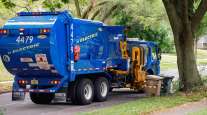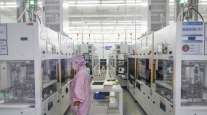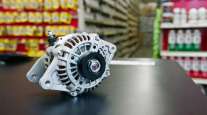Ford May Build Batteries to Power New Wave of EV Models

[Ensure you have all the info you need in these unprecedented times. Subscribe now.]
Ford Motor Co. is considering building the batteries to power a fleet of new electric vehicles as it prepares to cut back production of engines for its traditional gasoline-powered models.
“Electric vehicles have 40% less parts and that means they’re a lot easier to put together,” CEO Jim Farley said Nov. 13 at Reuters Automotive Summit. “What are we going to do about the jobs? In our case, this requires a really active discussion with our union partners and one of the obvious choices is going into cell production.”
Building battery cells is a costly and complicated endeavor, requiring billions in investment and learning new manufacturing techniques such as using antiseptic clean rooms, Farley said.

According to Shelley Dellinger of Cargo Transporters and Alphonso Lewis, ATA’s Road Team Captain and YRC Freight driver, diversity in recruitment methods is essential. Hear a snippet, above, and get the full program by going to RoadSigns.TTNews.com.
The automaker already is investing $11.5 billion to electrify its lineup. But as it brings out an electric Mustang Mach-E, E-Transit van and battery-powered F-150 pickup over the next two years, it may not have enough cell supplies from outside vendors. The company plans to use a battery made by South Korea’s SK Innovation Co. for a planned all-electric version of its F-150 pickup.
Most automakers rely on outside suppliers for batteries, which are the most expensive component in electric vehicles. Tesla Inc. has a longstanding partnership with Japan’s Panasonic Corp. and has plans to make its own cells. General Motors Co. has a venture with LG Chem Ltd. of South Korea to supply its next generation of EVs.
“We think they’ll be pretty good volume,” Farley said. “And what we’re finding is there’s not a lot of capacity flexibility if you buy your batteries from someone else.”
Farley sees industrywide sales of electric vehicles ramping up over the next five years, which is why it’s a good time to consider building batteries in-house.
“There’s a lot of other reasons beyond cost to make a move,” he said. “It’s the right time to discuss it. If we discussed it a year ago or two years ago, it would have been too early. If we discuss it in five years, it would be too late.”
Want more news? Listen to today's daily briefing:
Subscribe: Apple Podcasts | Spotify | Amazon Alexa | Google Assistant | More




